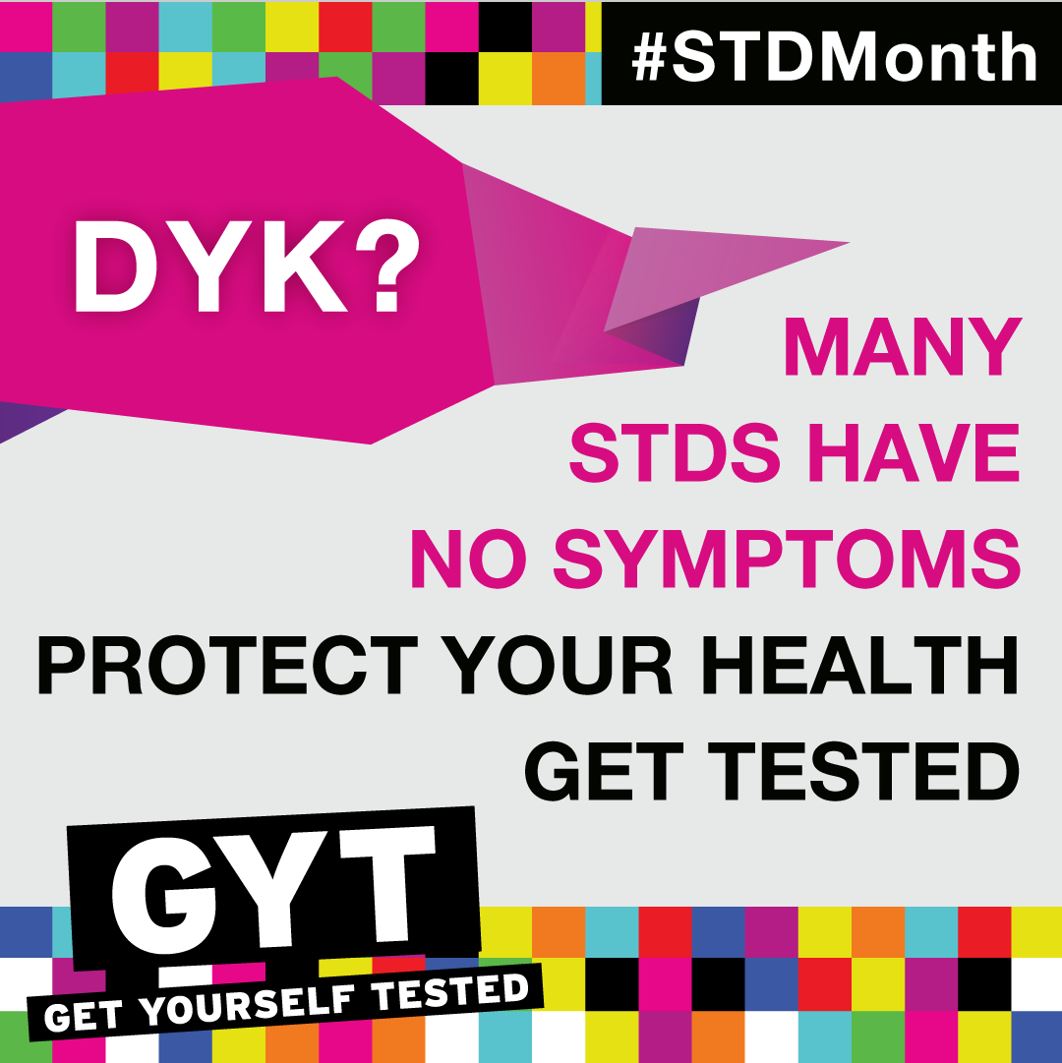
GYT: Get Yourself Tested

GYT: Get Yourself Tested is a campaign encouraging young people to get tested and treated for STDs and HIV to protect their health and that of their partners. STDs affect people of all ages, yet these diseases take a particularly heavy toll on young people.
Know the Facts.
False assumptions about STDs – how they’re spread, prevented, and treated – are everywhere, and it can be especially hard for people to get the facts. Making sure that you have the correct information about STD prevention and testing has never been more important.
Do you know…?
- STDs impact young people the hardest. In the U.S., half of all new STDs are in people under 25 years old.
- If you are sexually active, you can lower your risk of getting an STD by using a latex condom the right way from start to finish every time you have sex.
- Almost all STDs that can be spread via condomless vaginal sex can also be spread through oral and anal sex without a condom.
- You can’t tell if someone has an STD just by looking at them. Many STDs don’t cause any symptoms, so the only way to know for sure is to get tested.
- Even if you use birth control, you should still think about STD prevention. Birth control methods like the pill, patch, ring, and IUD are very effective at preventing pregnancy, but they do not protect against STDs and HIV.
- The most reliable way to avoid STDs is to not have vaginal, anal, or oral sex.
You should also know that all STDs, even HIV, are treatable, and most are curable. The sooner you get tested, the sooner you can take action to protect your health and the health of your partner(s).
Some STDs can lead to serious health problems if they’re not treated. For example, an untreated STD, like chlamydia, can make it difficult or impossible for a woman to get pregnant. And having herpes or gonorrhea can increase your chances of getting HIV.
- STD tests are quick, simple, and usually painless. For example, rapid HIV tests can provide results from just a swab inside the mouth in only 20 minutes.
- Not all medical checkups include STD testing. Unless you ask to be tested, you can’t assume you have been. Ask your medical provider which STDs you should be tested for.
- Talk to your partner about when you were last tested and suggest getting tested together. And if you have an STD, tell your partner. These conversations may seem hard to have, but open communication with your partner is essential to staying healthy and stopping the spread of STDs. These conversations may also bring you closer together. Here are some tips to help you start the conversationExternal.
- You can find confidential testing near you that is free or low cost by going to www.gettested.cdc.gov.
How to GYT
Which STD Tests Should I Get?
- All adults and adolescents from ages 13 to 64 should be tested at least once for HIV.
- All sexually active women younger than 25 years should be tested for gonorrhea and chlamydia every year. Women 25 years and older with risk factors such as new or multiple sex partners or a sex partner who has an STD should also be tested for gonorrhea and chlamydia every year.
- All pregnant women should be tested for syphilis, HIV, and hepatitis B starting early in pregnancy. At-risk pregnant women should also be tested for chlamydia and gonorrhea starting early in pregnancy. Testing should be repeated as needed to protect the health of mothers and their infants.
- All sexually active gay and bisexual men should be tested at least once a year for syphilis, chlamydia, and gonorrhea. Those who have multiple or anonymous partners should be tested more frequently for STDs (i.e., at 3- to 6-month intervals).
- Sexually active gay and bisexual men may benefit from more frequent HIV testing (e.g., every 3 to 6 months).
- Anyone who has unsafe sex or shares injection drug equipment should get tested for HIV at least once a year.


Most Commented